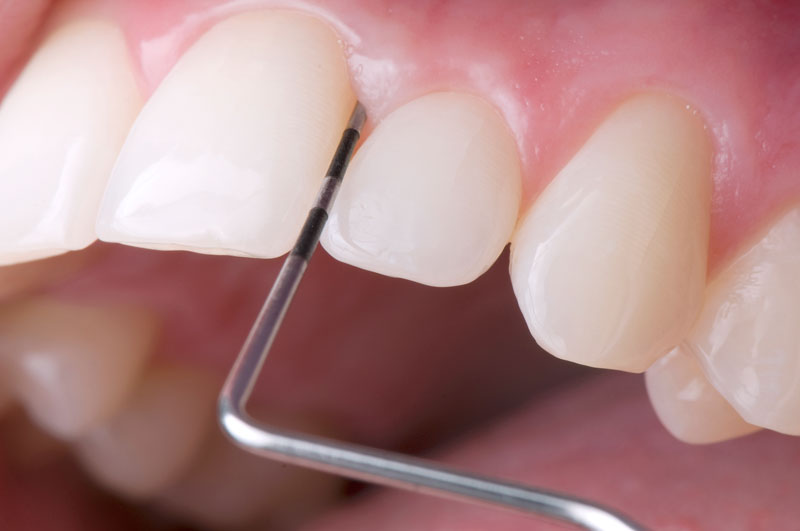Gum disease is concerning not only due to the immediate risks for oral health but for the complicated effects linked to gum disease including risks to heart and brain health.
Utilizing data on more than 6,000 participants it’s been shown that there is a correlation between gum disease and Alzheimer’s disease (AD). In 2020 the Journal of Alzheimer’s Disease published a fifteen page research study that revealed a previously unverified link between gum disease and Alzheimer’s disease (AD). IMay A. Beydoun and NIA research colleagues authored the article that utilized multivariable-adjusted Cox proportional hazards models to study the potential correlation.
The study utilized survey data collected between the years of 1988 to 1994 by the third National Health and Nutrition Examination Surveys. This health data was then compared to records from the National Death Index and Medicare through January 1, 2014. The corresponding data was statistically analyzed to evaluate any correlation between clinical [Attachment Loss (AL); probing pocket depth (PPD)] and bacterial [pathogen immunoglobulin G (IgG)] periodontal markers and AD incidence as well as AD mortality.
The study found consistent association between AD and PPD for those at or over sixty-five years of age. AD incidence versus AD mortality were linked to two different composite gum disease elements. AD incidence was linked to C. rectus and P. gingivalis titers while AD mortality risk was linked with the composite ofIgG for P. gingivalis, Prevotella intermedia, Prevotella nigrescens, Fusobacterium nucleatum, C. rectus, Streptococcus intermedius, Capnocylophaga Ochracea, and P. melaninogenica.
The study found strong correlation for this age bracket and suggested further studies to assess causation between the factors. This study paved the way for clinical trials to test what effect treating these types of gum disease has in reducing neurodegenerative AD risk.
The correlation, while not definitive causation, is enough to prompt many people to reassess the importance of gum health and seek effective treatment for bacterial and clinical periodontal issues. It is especially important for those in higher age brackets to take intentional care of their gum health if the correlation does end up confirming causation.
The Journal of Alzheimer’s Disease recently published an analysis compiled by NIA scientists. It provides evidence that the bacteria that cause periodontal disease are associated with developing Alzheimer’s and dementia. This emphasizes the importance of keeping your gums healthy to lower your risk of these diseases.
Around 700 species of bacteria live in the mouth. Periodontal disease occurs because the gum tissue that holds the teeth in place becomes infected. Symptoms of periodontal disease include loose teeth, bleeding gums, and eventual tooth loss if the gum disease is not treated quickly and effectively.
Some forms of bacteria in the mouth can produce inflammatory molecules. Both the molecules and bacteria can enter an infection in the gums and travel through the bloodstream, even reaching the brain. Some small studies have indicated that dementia can get started this way. However, large studies have not been performed in order to confirm the relationship between gum disease and dementia.
A team at NIA under the Intramural Research Program conducted an analysis that was based on more than 6,000 individuals with the goal of examining the link between infections caused by oral bacteria and dementia. They used information from a survey that is performed by the Centers for Disease Control and is available publicly. They also used the National Death Index and Medicare records. The team could examine various age groups and had information that related to 26 years of consistent follow-up.
The more than 6,000 individuals who participated in CDC’s survey had dental exams and were checked for gum disease. These individuals also received blood tests that indicated that they had causative bacteria antibodies. The team was looking for an association between oral bacteria and a diagnosis of dementia or Alzheimer’s. They also looked at the National Death Index to see if any of the participants died from Alzheimer’s.
The NIA team found that older individuals who had mouth infections or signs of gum disease at baseline had a higher likelihood of developing Alzheimer’s over the period of time they examined. When looking at participants who were 65 and older, a diagnosis of Alzheimer’s and deaths associated with Alzheimer’s had a link to porphyromonas gingivalis antibodies. This bacteria can cluster with other forms of bacteria and increase a person’s likelihood even more of getting Alzheimer’s.
The findings from the survey suggest links between oral infections and eventual diagnosis of dementia.
Another study revealed that beta-amyloid protein plaque can be produced in the mouth in response to porphyromonas gingivalis. Porphyromonas gingivalis is one of the major causes of gum disease. And beta-amyloid proteins are a major hallmark of Alzheimer’s.
More research and future trials are needed to fully confirm whether treating gum disease can make it less likely that a person develops dementia or if it can reduce their symptoms. For now, regular brushing, flossing, and dental visits are the best defense against gum disease and the possibility of developing dementia.
The full abstract for Clinical and Bacterial Markers of Periodontitis and Their Association with Incident All-Cause and Alzheimer’s Disease Dementia in a Large National Survey can be accessed on the National Library of Medicine’s website.
